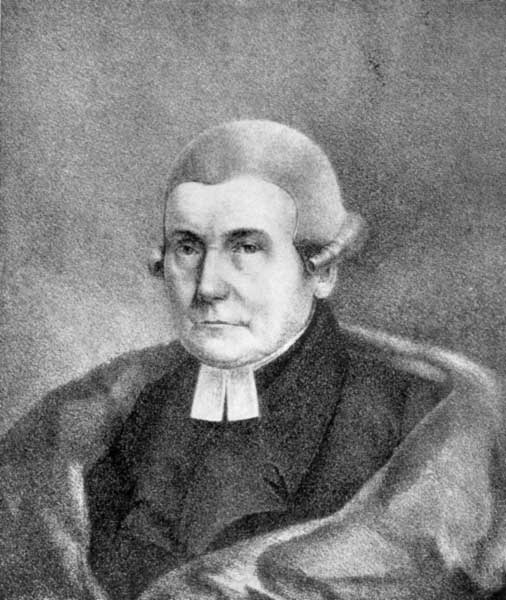Karl Ludwig Nitzsch on:
[Wikipedia]
[Google]
[Amazon]
 Karl Ludwig Nitzsch (6 August 1751 – 5 December 1831) was a German
Karl Ludwig Nitzsch (6 August 1751 – 5 December 1831) was a German
at Deutsche Biographie He was married to Louise Wernsdorf, the daughter of German rhetoricianThe Encyclopædia Britannica: A Dictionary of Arts, Sciences ..., Volume 19
edited by Hugh Chisholm In addition to the aforementioned work, he was the author of: * ''Ueber das Heil der Welt'', 1817 – On salvation of the world. * ''Ueber das Heil der Kirche'', 1821 – On salvation of the church. * ''Ueber das Heil der Theologie'' 1830 – On salvation of theology.
 Karl Ludwig Nitzsch (6 August 1751 – 5 December 1831) was a German
Karl Ludwig Nitzsch (6 August 1751 – 5 December 1831) was a German theologian
Theology is the systematic study of the nature of the divine and, more broadly, of religious belief. It is taught as an academic discipline, typically in universities and seminaries. It occupies itself with the unique content of analyzing the ...
, a professor of theology since 1790.
Nitzsch was born in Wittenberg
Wittenberg ( , ; Low Saxon: ''Wittenbarg''; meaning ''White Mountain''; officially Lutherstadt Wittenberg (''Luther City Wittenberg'')), is the fourth largest town in Saxony-Anhalt, Germany. Wittenberg is situated on the River Elbe, north o ...
, where he studied from 1770 to 1775. He later served as a pastor in the towns of Beucha (from 1781) and Borna (from 1785). In 1788, he became a superintendent and consistorial assessor in Zeitz
Zeitz ( hsb, Žič) is a town in the Burgenlandkreis district, in Saxony-Anhalt, Germany. It is situated on the river White Elster, in the triangle of the federal states Saxony-Anhalt, Thuringia and Saxony.
History
Zeitz was first recorded u ...
. In 1790, he obtained his doctorate in theology and during the same year became a professor at the University of Wittenberg
Martin Luther University of Halle-Wittenberg (german: Martin-Luther-Universität Halle-Wittenberg), also referred to as MLU, is a public, research-oriented university in the cities of Halle and Wittenberg and the largest and oldest university in ...
.Nitzsch, Karl Ludwigat Deutsche Biographie He was married to Louise Wernsdorf, the daughter of German rhetorician
Johann Christian Wernsdorf
Johann Christian Wernsdorf I (6 November 1723 in Wittenberg – 25 August 1793 in Helmstedt) was a German writer, poet, and rhetorician.
Life
Born the son of Gottlieb Wernsdorf the Elder and his wife Magaretha Katharina (nee Nitsch), he lost hi ...
. He died in his home city of Wittenberg.
Like his son, the better-known Karl Immanuel Nitzsch
Karl Immanuel Nitzsch (21 September 1787, Borna – 21 August 1868, Berlin) was a German Lutheran church leader. He was the father of theologian Friedrich August Nitzsch.
Biography
He was born in the small Saxon town of Borna near Leipzig. Hi ...
, he earned some distinction in the theological world by a number of writings, including a work entitled ''De discrimine revelationis imperaboriae et didacticae prolusiones academicae'' (2 volumes, 1830). Theologically, he represented a combination of supernaturalism and rationalism
In philosophy, rationalism is the epistemological view that "regards reason as the chief source and test of knowledge" or "any view appealing to reason as a source of knowledge or justification".Lacey, A.R. (1996), ''A Dictionary of Philosophy ...
(supernatural rationalism or a Kantian
Kantianism is the philosophy of Immanuel Kant, a German philosopher born in Königsberg, Prussia (now Kaliningrad, Russia). The term ''Kantianism'' or ''Kantian'' is sometimes also used to describe contemporary positions in philosophy of mind, ...
rational supernaturalism).edited by Hugh Chisholm In addition to the aforementioned work, he was the author of: * ''Ueber das Heil der Welt'', 1817 – On salvation of the world. * ''Ueber das Heil der Kirche'', 1821 – On salvation of the church. * ''Ueber das Heil der Theologie'' 1830 – On salvation of theology.
See also
* Gregor Wilhelm NitzschReferences
1751 births 1831 deaths People from Wittenberg 19th-century German Protestant theologians People from the Electorate of Saxony Academic staff of the University of Wittenberg 19th-century German male writers German male non-fiction writers {{Germany-reli-bio-stub